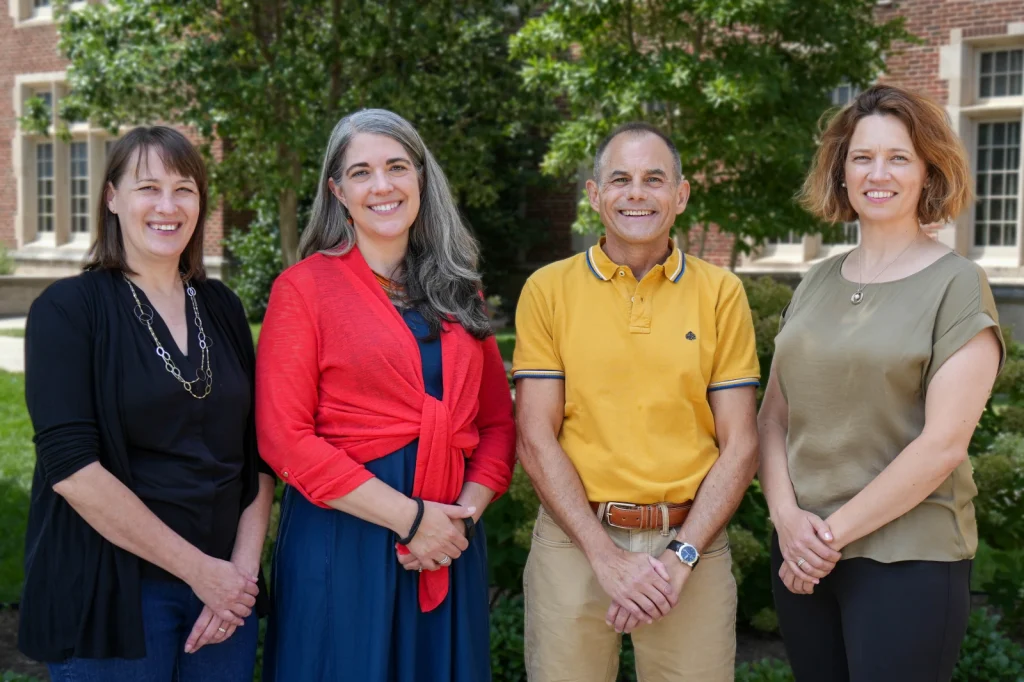CATE Initiative Designed to Elevate CAS Teaching Excellence

Initiative Designed to Elevate Teaching Excellence
The Community of Scholars for Advancing Teaching Excellence (CATE) launched in summer 2024 along with other new collaborative research initiatives supported by the UT College of Arts and Sciences (CAS). Over the next two years, CATE will build a community among instructors and develop resources and guidance on teaching excellence through topical workshops, seminars by visiting scholars, and the participation of faculty, staff, and students in feedback about the classroom experience.
“CATE will bring together a community of instructors who are passionate about the practice of teaching to collaborate and share ideas about how to better align our courses with the UT principles of teaching excellence,” said initiative leader Professor Elisabeth Schussler from the Department of Ecology and Evolutionary Biology.
Many CAS instructors already actively practice these principles, which include:
- Clarity in course design and communication
- Approachability, empathy, and respect for all students
- Reflective improvement of teaching
- Engaging and student-centered classroom teaching
“CATE will give instructors new and, we hope, easy-to-implement pedagogical strategies they can use to bring their courses closer to the ideals outlined by the principles,” said Schussler.
This community of scholars includes faculty leaders from each CAS division to assure inclusive communication across units. Erin Hardin, professor in the Department of Psychology, represents social sciences; Gregory Kaplan, professor in the Department of World Languages and Cultures, represents arts and humanities; and Caroline Wienhold, Faculty Fellow for natural sciences and mathematics, represents that division.
“Excellent teaching is an essential component of any world-class university,” said Interim Executive Dean Robert Hinde. “By establishing CATE, we are giving instructors across the college even more tools and professional networks to ensure that our students have a great classroom experience.”
CATE’s interdisciplinary structure will allow instructors to focus on the core principles of world-class teaching regardless of their disciplinary area.
“CATE is going to do tremendous work to enrich and celebrate teaching across the college,” said Michael Blum, associate dean for research and creative activity. “I’m looking forward to partnering with them to achieve these goals.”
The CATE team will host two kick-off informational sessions in September at which instructors can learn more about the efforts and sign up to participate.
“From there, CATE members will decide how they want to approach the project—what principles to focus on, what instructor needs are, what types of resources would be most useful, etc.,” said Schussler. “‘Grassroots’ is a core value of the effort.”
Success for CATE will come through mutual engagement as instructors actively use the principles to identify new teaching ideas and define the best choices in their approach to instruction.
“A final benchmark would also be a culture of talking about teaching across the college,” said Schussler. “Teaching is an important part of our jobs, and many instructors do it really well. We need to elevate and celebrate that work because it is so valuable to our students.”
By Randall Brown